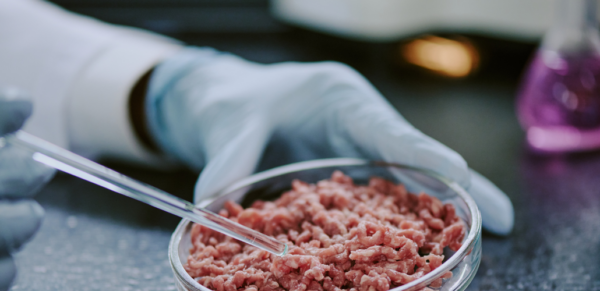Impact Investing COVID-19 Round-up

While it seems no part of the economy has been spared by the COVID-19 crisis, Clean Yield’s alternative investments have responded with creativity and tenacity. These small and growing businesses and community-focused funds have highlighted for us the resilience of our local food and farming systems, the importance of our community loan funds, and the essential role of patient and equitable capital in times of uncertainty.
Food Systems Investments
The vast majority of food systems businesses that Clean Yield is invested in are considered essential and have taken steps to protect their employees and implement protocols to ensure the safest workplace possible. The Skinny Pancake has started ShiftMeals to support laid-off workers in Vermont. Although it has closed its restaurants, it is leveraging its resources and teaming up with the Vermont Food Bank to provide over 20,000 meals to Vermonters facing hunger – all while keeping some of its staff on payroll and providing local farmers with an outlet for their food. Farmers to You and High Mowing Organic Seed Company are seeing a boom in business as people shelter in place and seek food security through the planting of gardens. Aqua ViTea is partnering with Caledonia Spirits to produce hand sanitizer using the alcohol it extracts from its kombucha. The Carrot Project’s Facebook page lists all the incredible ways farmers are pivoting and adapting.
Equal Exchange has reported that information about COVID-19 cases from producer countries is limited but that sales of coffee, chocolate, and tea have increased as consumers stock up! Root Capital has noted that while the virus has not yet reached most rural areas in Africa and Central and South America, many farmers are facing labor shortages and increased food insecurity as local governments restrict movement into town centers. Root Capital has responded in a variety of ways to support agricultural enterprises and farming families. For example, one women’s cooperative in Honduras that had received a $20K grant from Root Capital cannot use it for its original purpose (climate change adaption) and will reallocate it toward a fund set up to buy food crop seeds to ensure their families will have enough to eat for the months ahead.
Community Loan Funds
Community loan funds are responding to borrowers in crisis with loan modifications while continuing to underwrite new loans and providing training and support remotely. The Vermont Community Loan Fund is participating in the Paycheck Protection Program (PPP), and the New Hampshire Community Loan Fund has established the Borrower Stabilization Fund. CEI is advocating and bringing a rural voice to the national debate and providing three months of debt relief to food and agriculture borrowers. Calvert Impact Capital has worked with other CDFIs to develop a community-centered COVID-19 Recovery Program. The Flexible Capital Fund is giving a three-month payment moratorium upon request. Janice St. Onge, president of the Fund, argues that now is not the time to hold back our dollars. Critical infrastructure businesses need patient capital more than ever. She warns that low-cost debt is not always the best solution, and what we need now – and in the future – is more equity and equity-like financing instruments (and investors) to support businesses that are critical to our communities and food system infrastructure.
Sustainable Real Assets
Iroquois Valley Farmland REIT (IQVF) “[has] wired [its] capital base to survive a crisis.” IQVF’s business plan remains unchanged from its beginnings during the 2008 financial crisis: raise long-term capital from mission-aligned investors, which allows them to take a slow and methodical approach to purchasing farms. It is these small and medium-sized farms that are playing a critical role in our food system during the crisis.
The extent of the COVID-19 impact on the forest products economy remains uncertain, but there are clear signs of weakness in markets for Lyme Timber Company logs. However, Lyme Timber has taken the approach that the best strategy is to continue operations, maintain as much flexibility as possible due to unpredictable market conditions, and continue to employ and support its critical partners, from loggers to sawmills, to ensure that they are still in existence when the economy turns around.
Opportunities to Provide Support
Several investments are offering investors ways to support businesses impacted by the crisis.
The Boston Impact Initiative is asking investors to support two pools: the Loan Guarantee Pool to help cover missed payments and the People Guarantee Pool to provide grants to support employee paid leave, both for qualifying portfolio companies during the COVID-19 outbreak. The Cooperative Fund of New England is making available a $1 million Emergency Cooperative Enterprise Relief Loan Fund for cooperatives in New England and parts of New York state which are seeing a dramatic loss of customers and revenue as a result of the pandemic. Sunwealth is offering investors the ability to forgo interest payments to defray solar electric bills of nonprofits in the Sunwealth portfolio. And as mentioned before, the New Hampshire Community Loan Fund’s Borrower Stabilization Fund will provide moratoriums on loan payments for borrowers affected by illness, layoffs, or closures and offer customized coaching to help businesses through their unforeseen challenges. Root Capital’s Rapid Response Fund will help the organization deliver emergency financing and technical assistance to ensure rural enterprises in the developing world can continue to operate during and after the pandemic.
What Clean Yield Is Doing
Clean Yield has been actively engaged with investees, looking for ways to support these businesses and funds. If clients are interested, we have waived or deferred payments in some instances and forgone interest payments in others. For example, six Clean Yield clients agreed to forgo interest payments from their Sunwealth investments.
As we shift gears from the acute impact of widespread shelter-in-place orders and begin to navigate the next phase of the pandemic, we will continue to look for opportunities to support small businesses, especially those in rural communities. We believe that supporting these businesses is an essential step to seeing the economy we seek on the other side of this pandemic.
More News & Insights
Proxy Voting: A Critical Tool for Individuals and Investors to Influence Corporate Behavior
Learn how proxy voting gives equity (stock) investors a powerful tool to pressure corporations to act more responsibly.
A New Kind of Meat
Through Clean Yield’s U.S. Sustainable Investment Forum membership, Liz Levy attended a meeting to gain insights on the emerging cultivated meat industry.
Stock Profile: SoFi Technologies
SoFi Technologies, originally named Social Finance, Inc., by its founders, contributes positively to financial inclusion and social well-being by expanding access to affordable financial services through its digital-first platform.


